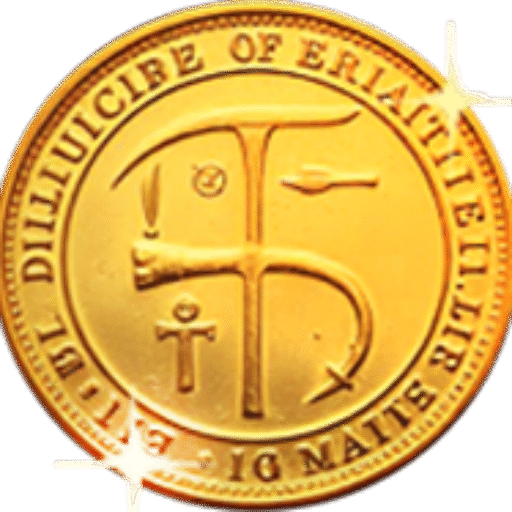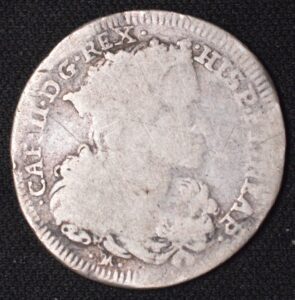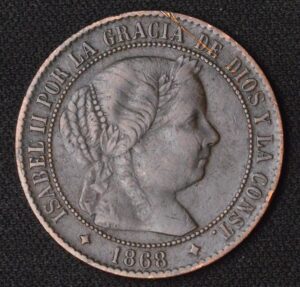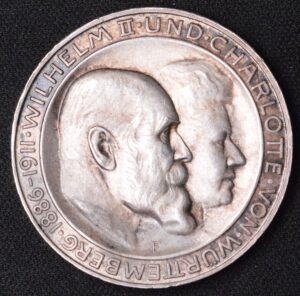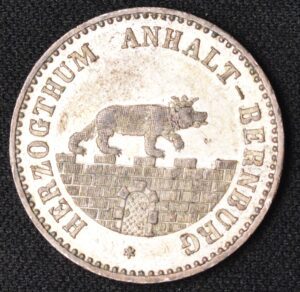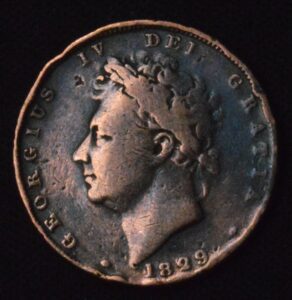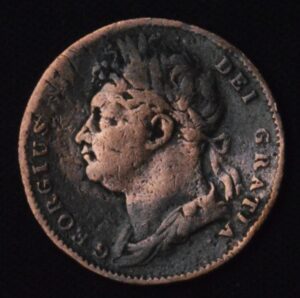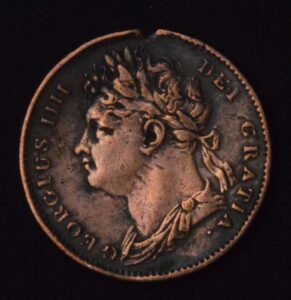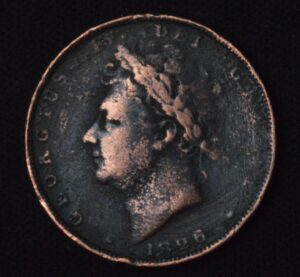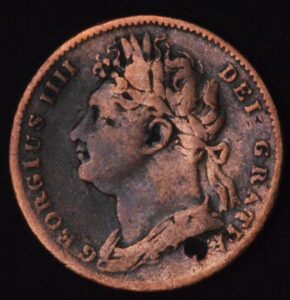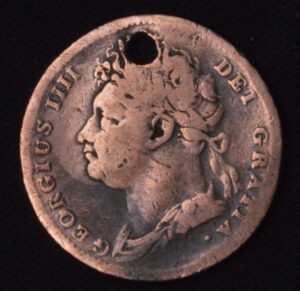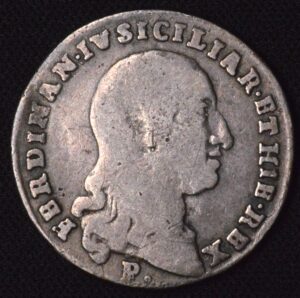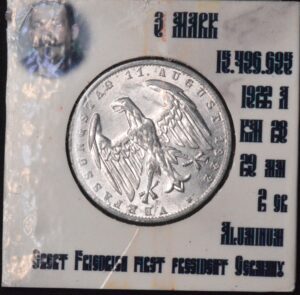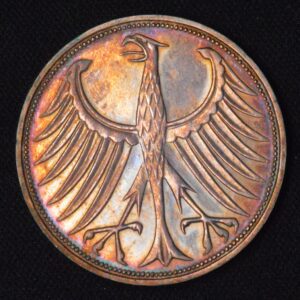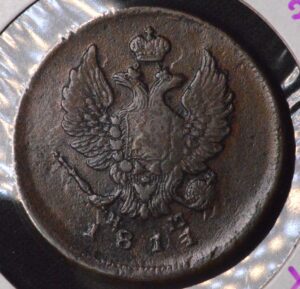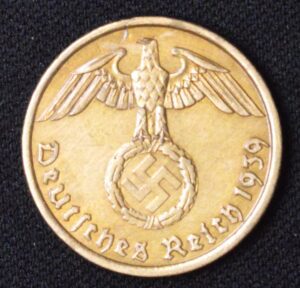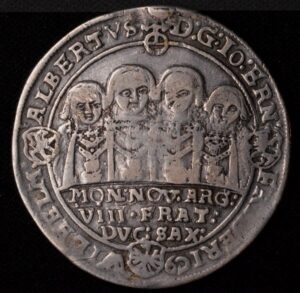Description
The 1753 Italian 120 Grana silver coin issued under Carlos III is a large, impressive piece from the Kingdom of Naples, highly collectible for its history and substantial size. This medieval-style coin features a silver fineness of approximately 0.961 and a weight of about 25.6 grams, making it visually striking with a diameter of roughly 40–42 mm—a true centerpiece in the realm of European crown-sized coins.
These coins were crafted during the reign of Charles III of Bourbon, who ruled Naples from 1734 to 1759 before becoming King of Spain. The obverse generally shows the bust or profile of the monarch, styled with classical regal features, while the reverse often displays heraldic devices and detailed legends highlighting the coin’s denomination and issuing authority. The bold imagery and size reflect the grandeur of the Bourbon monarchy in Southern Italy.
Condition for this specific piece is noted as VG (Very Good), common for a coin of this age which typically means design features are well-defined though general wear is visible. Despite wear, such coins remain popular for their weighty feel, rich patina, and old-world charm—attributes that make them beautiful examples of the medieval-to-modern transition in European silver currency.
Collectors value the 120 Grana for its historical context as well as its metallic content, containing nearly 0.79 troy ounces of fine silver. Its role in circulation in Naples and Sicily underlines the importance of large denomination silver coins in 18th-century Italian trade. Coins like this often sell for premiums over melt value due to their historical rarity and desirability among world coin enthusiasts.
In summary, the 1753 120 Grana of Naples under Carlos III is an outstanding addition for collectors of Italian, Spanish, or medieval silver coins. Its impressive size, high silver content, and storied past ensure enduring interest and value—making it a beautiful representation of Southern Italian numismatic heritage.
These coins were crafted during the reign of Charles III of Bourbon, who ruled Naples from 1734 to 1759 before becoming King of Spain. The obverse generally shows the bust or profile of the monarch, styled with classical regal features, while the reverse often displays heraldic devices and detailed legends highlighting the coin’s denomination and issuing authority. The bold imagery and size reflect the grandeur of the Bourbon monarchy in Southern Italy.
Condition for this specific piece is noted as VG (Very Good), common for a coin of this age which typically means design features are well-defined though general wear is visible. Despite wear, such coins remain popular for their weighty feel, rich patina, and old-world charm—attributes that make them beautiful examples of the medieval-to-modern transition in European silver currency.
Collectors value the 120 Grana for its historical context as well as its metallic content, containing nearly 0.79 troy ounces of fine silver. Its role in circulation in Naples and Sicily underlines the importance of large denomination silver coins in 18th-century Italian trade. Coins like this often sell for premiums over melt value due to their historical rarity and desirability among world coin enthusiasts.
In summary, the 1753 120 Grana of Naples under Carlos III is an outstanding addition for collectors of Italian, Spanish, or medieval silver coins. Its impressive size, high silver content, and storied past ensure enduring interest and value—making it a beautiful representation of Southern Italian numismatic heritage.
The 1753 Italian 120 Grana silver coin issued under Carlos III is a large, impressive piece from the Kingdom of Naples, highly collectible for its history and substantial size. This medieval-style coin features a silver fineness of approximately 0.961 and a weight of about 25.6 grams, making it visually striking with a diameter of roughly 40–42 mm—a true centerpiece in the realm of European crown-sized coins.
These coins were crafted during the reign of Charles III of Bourbon, who ruled Naples from 1734 to 1759 before becoming King of Spain. The obverse generally shows the bust or profile of the monarch, styled with classical regal features, while the reverse often displays heraldic devices and detailed legends highlighting the coin’s denomination and issuing authority. The bold imagery and size reflect the grandeur of the Bourbon monarchy in Southern Italy.
Condition for this specific piece is noted as VG (Very Good), common for a coin of this age which typically means design features are well-defined though general wear is visible. Despite wear, such coins remain popular for their weighty feel, rich patina, and old-world charm—attributes that make them beautiful examples of the medieval-to-modern transition in European silver currency.
Collectors value the 120 Grana for its historical context as well as its metallic content, containing nearly 0.79 troy ounces of fine silver. Its role in circulation in Naples and Sicily underlines the importance of large denomination silver coins in 18th-century Italian trade. Coins like this often sell for premiums over melt value due to their historical rarity and desirability among world coin enthusiasts.
In summary, the 1753 120 Grana of Naples under Carlos III is an outstanding addition for collectors of Italian, Spanish, or medieval silver coins. Its impressive size, high silver content, and storied past ensure enduring interest and value—making it a beautiful representation of Southern Italian numismatic heritage.
CUSTOMER FEEDBACK








Related Products & Newly Released!
-
$150.00




SHIPPING POLICY
Your order is shipped from the United States with USPS tracking within one business day.
14 Day Return Policy
You can return your item back within
14 days of the purchase

Secure payments
Your payments are 100% secure and are processed through Square or PayPal on a protected security network.
SHIPPING POLICY
FREE International and Domestic (United States) shipping. Your order is shipped with USPS tracking 24 hours after you order.
14 Day Return Policy
You can return your item back within
14 days of the purchase

Secure payments
Your payments are 100% secure and are processed through Square or PayPal on a protected security network.
RESOURCES
support
Get Real Deals!
Sign up now to receive our articles for the latest insights and promotions!
RESOURCES
support
Get Fresh Articles!
Signup our newsletter to get update insight or promotions.

